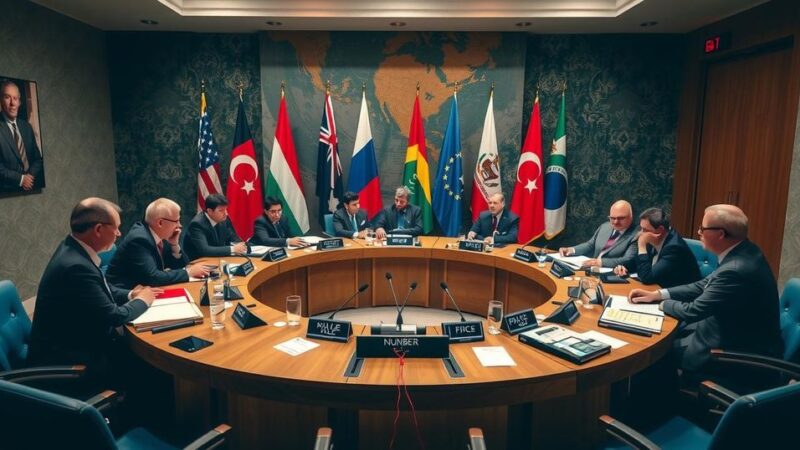The article critiques the Biden administration’s policy of de-escalation in the Middle East, arguing that it restricts Israel’s military options in response to Iranian aggression. U.S. officials consistently deny involvement in Israeli operations against Hezbollah, emphasizing a need for reduced tensions. Critics assert that this framework undermines Israel’s security and miscalculates the threats posed by Iran, ultimately indicating a need for a more assertive U.S. stance that supports Israel’s right to defend itself effectively.
The Biden administration’s persistent emphasis on de-escalation is perceived to constrain Israel’s military options against Iranian threats and its proxies, particularly Hezbollah. Recent statements from White House national security officials have sought to distance the United States from Israeli military operations in Lebanon and against Hezbollah leaders, repeatedly asserting lack of involvement and prioritizing a reduction in regional tensions. For instance, National Security Spokesperson John Kirby stated, “We don’t seek a wider war in the region,” and failed to acknowledge any American backing for Israel’s defensive strategies. Likewise, other officials stressed the importance of avoiding conflict and maintaining peace, a stance which many critics argue undermines Israel’s ability to act decisively in light of escalating threats from Iran and its affiliates. The administration’s strategy is predicated on the belief that a diplomatic resolution with Iran can lead to broader regional stability; however, this approach overlooks the immediate dangers posed by Iran’s intentions and actions. Critics assert that the U.S. must adopt a more robust posture, employing direct military threats against Iran to protect Israel and regional interests, rather than simply disavowing actions that are classified as escalatory. This has led to a perception that the Biden administration is poorly supporting Israel in its current military campaigns, especially amidst mounting tensions after significant attacks from Hamas and direct threats from Hezbollah. De-escalation, while a noble goal, is becoming increasingly impractical in the context of Iran’s expansion and hostility. Comments from various U.S. officials reveal a consistent narrative of distancing the U.S. from Israel while pushing for a conciliatory approach towards Iran. Observations from Israeli leaders suggest that they recognize an urgent need to confront these threats head-on and some argue that an escalation against Iran is now not only necessary but inevitable to ensure Israel’s long-term survival against any potential nuclear threats and proxy conflicts in the region. The current strategy reflects a miscalculation that may embolden Iran rather than foster peace and security for Israel and its allies. Underlying the rhetoric of de-escalation is a troubling diplomatic narrative which insists that Israel must temper its defensive operations. Statements from senior officials imply conditional acceptance of Israel’s right to defense, often with caveats that can undermine its military effectiveness. Thus, many assert that a shift toward embracing a more assertive military stance, rather than a token pursuit of moderation, may be essential for genuine Israeli security in the face of aggressive foes.
The article discusses the impacts of U.S. foreign policy under President Joe Biden, particularly regarding the Middle East and relations with Israel and Iran. It highlights the U.S. administration’s focus on de-escalation in the region, citing various statements from officials that deny U.S. involvement in Israeli military operations and emphasize the need to avoid wider conflicts. Critics argue that this approach hampers Israel’s ability to respond effectively to threats from Iran and its proxies. The article also touches on the perceived consequences of prioritizing diplomatic solutions over military readiness, suggesting that such stances may ultimately embolden adversaries rather than foster stability.
In conclusion, the Biden administration’s approach to de-escalation is viewed as a hindrance to Israel’s capacity to defend itself against Iranian hostilities. While aiming for diplomatic resolution, the strategy may inadvertently empower Iran and restrict Israel’s military responses. A reevaluation of U.S. support for Israel, emphasizing decisive military action and a strategic posture towards Iran, is deemed necessary to ensure regional stability and Israel’s long-term security. Efforts should shift towards bolstering American and allied defenses rather than fettering them with constraints that may be impractical in the face of ongoing threats.
Original Source: www.jpost.com






